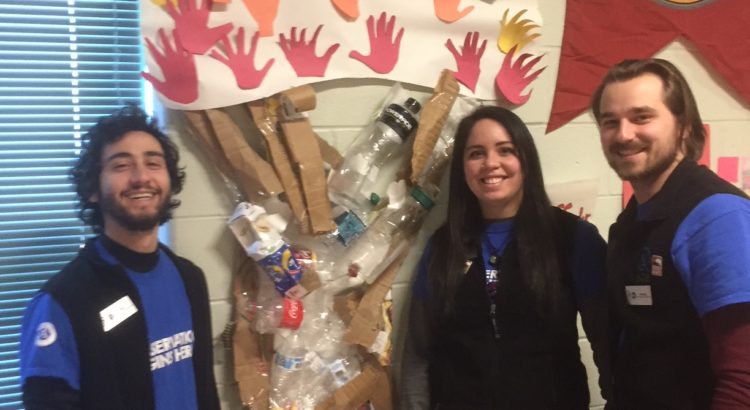By: Cora Rodriguez, 2019 Student Conservation Association New Hampshire AmeriCorps Member
For one of the lessons I was leading as an SCA NH Corps member, I wanted to do something creative and fun for the kids we teach. The topic the week was “waste and recycling.” It is important for kids to know what recycling is, how to do it, and why it is making a positive impact. A sculpture came to mind as an activity to do with the students, but a sculpture of what, made out of what exactly? This is where the recycle tree idea came from: a tree would be constructed using only recyclable materials and tape. After some planning and hard work we saw the tree come to life on the walls of classrooms right here in Manchester, New Hampshire.
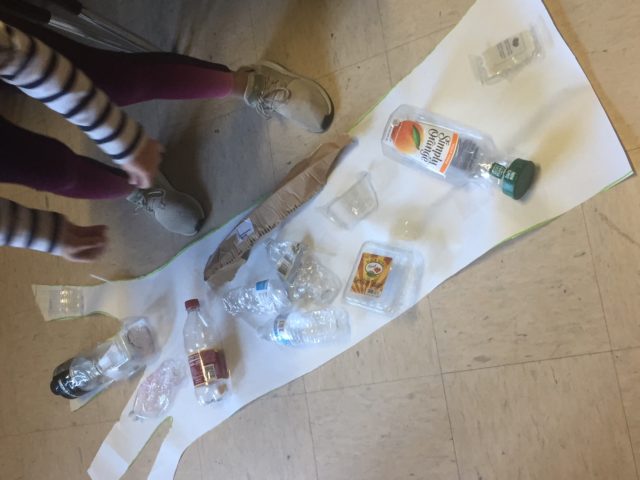
The tree trunk was made out of different recyclable materials such as various sized plastic bottles, plastic cups and lids, aluminum cans, plastic milk jugs, paper bags, cardboard and much more.
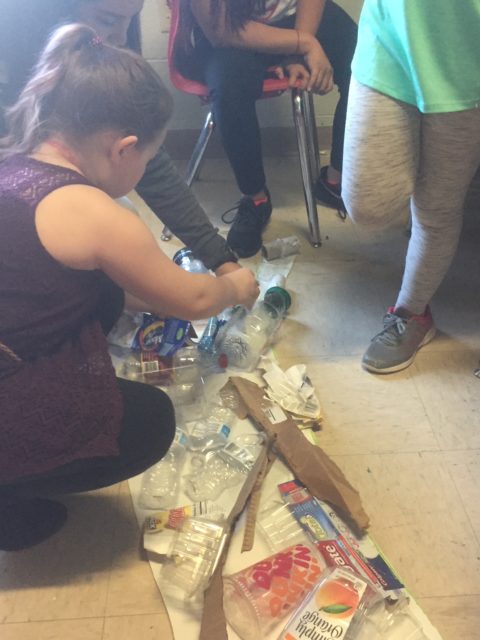
Here we can see a child placing a piece of recyclable plastic onto the tree trunk. We used tape to adhere each piece onto a pre-cut piece of paper shaped like a tree trunk. Each piece of plastic represented just how much of an impact plastics and other recyclable materials are having on our environment. We emphasized just how important it is to practice the four R’s : Reduce, Reuse, Recycle and Refuse. To reduce the amount of waste created, to reuse things in creative ways such as making this tree, to recycle all that you can, and to refuse the use of plastics whenever possible.
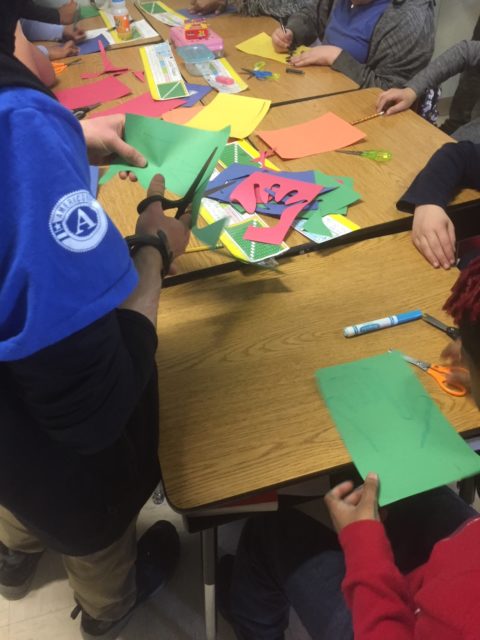
With each recyclable object that we put onto the tree, we spoke to the kids about the negative impact plastics and other waste have on our environment, especially the ocean. We taught them about the Great Pacific garbage patch, with its impressive size: twice the size of Texas! We also taught the kids about microplastics and how plastic doesn’t ever fully break down, but instead turns into tiny little pieces that can enter the food chain. Most kids were grossed out at the thought of eating plastic and saw why a water bottle in the ocean, for example, is a negative thing that should be avoided.
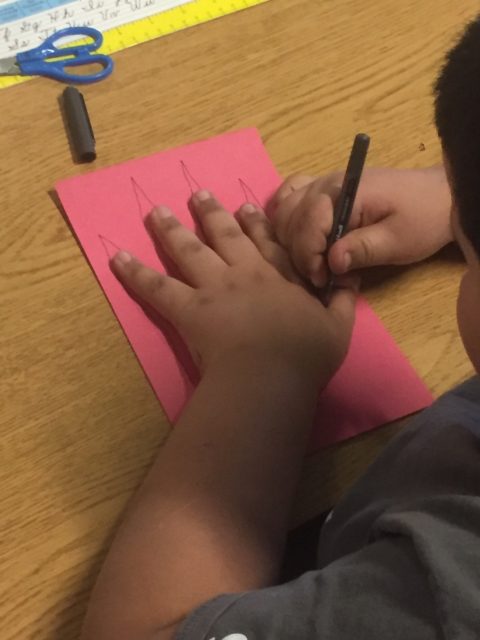
To make the canopy of the tree, I traced out the general shape of a canopy on white paper, then asked the students to make the leaves. The leaves were made out of paper, but were in the shape of the students’ hands. They made two cutouts. On one of them students simply wrote their name. On the other, they put an example of how they could use the four R’s: Reduce, Reuse, Recycle and Refuse. Children wrote things like:
“Use a reusable water bottle,”
“Don’t use plastic bags at the store” and
“Say no to straws.”
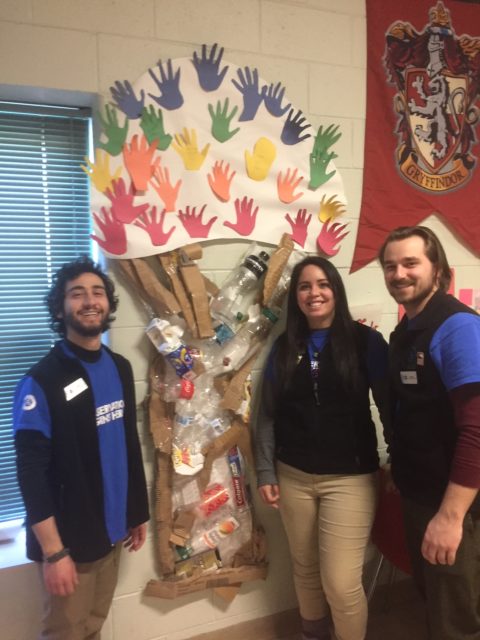
In the end the recycle tree was a success. It serves as a representation of how plastic and waste is becoming a part of our environment and how we as students and humans should do all that we can in order to fight against the adverse impacts of plastics.

